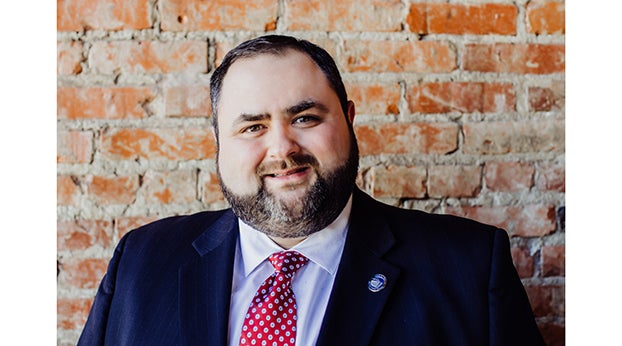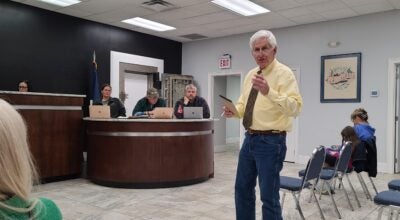OPINION
Addiction crisis requires all-hands-on-deck approach
Published 3:00 am Wednesday, March 9, 2022

- Tim Robinson
Every day in the United States, more than 270 people die from drug overdoses. That’s one person roughly every five minutes.
Behind these staggering statistics are real people—mothers, fathers, sons, daughters, colleagues, friends—and their loved ones whose lives have been forever changed. With more than 2,300 Kentucky lives lost to overdoses just last year, our communities here at home have certainly felt the impacts firsthand.
In recent years, fentanyl has become an unprecedented and driving force of overdose fatalities, accounting for the deaths of more than 79,000 adults ages 18 to 45 and becoming the leading cause of death for Americans in that age range. Officials in Kentucky have also linked fentanyl to increases in drug overdose deaths.
If you take a look at headlines from across the country, you’ll find heartbreaking story after heartbreaking story of the individuals behind these facts and figures—many of whom are shockingly young. Between 2019 and 2020, drug deaths among children ages 10 to 14 more than tripled.
Researchers estimate that adolescents and young adults have lost 1.2 million years of life due to unintentional drug overdoses over a five-year period.
As a result, more conversations are happening at the state and federal levels about the road ahead. In February, lawmakers in Washington, D.C. released a bipartisan report outlining strategies to address our nationwide fentanyl problem and reduce the number of overdose deaths, which include increasing prevention resources and access to treatment.
Much like the comprehensive public health response to the HIV/AIDS epidemic back in the 1980s, the addiction crisis requires an all-hands-on-deck approach. This is a problem that’s worse today than it was just a couple years ago. To start moving in the right direction, we must invest in education, prevention, treatment, and recovery—and without delay.
As frontline treatment providers, our organization is constantly working to identify and reduce barriers to recovery. When an individual decides to seek help, our transportation team will pick them up, wherever they are, and bring them to treatment. Addiction Recovery Care’s team of community liaisons serves as our boots on the ground throughout the state, working to connect with some of our most vulnerable community members and the hospitals, doctors, and corrections facilities that routinely interact with them. Our ARC Anywhere program takes advantage of advances in telehealth and broadband to offer services via phone and computer.
While accessible treatment is a critical part of the equation, equally important is prevention, especially among our younger community members who still have so much of their lives ahead of them.
In Kentucky, we’re fortunate to have partners like Operation UNITE that have led the way on prevention since the earliest days of the addiction crisis. Operation UNITE has consistently been ahead of the curve with their programs that educate children and teens on the dangers of substance use. And while prevention alone won’t stop addiction in its tracks, I know that many teens and adults who are struggling with addiction today would have benefited from learning about substance use from a younger age and being equipped with the proper tools and information.
At the end of the day, treatment and prevention are two sides of the same coin. That’s why we also work hand-in-hand with Operation UNITE to ensure that anyone who wants treatment services can receive them, regardless of their ability to pay. Operation UNITE’s Treatment Voucher Program provides financial assistance to low-income Kentuckians pursuing long-term residential treatment for a substance use disorder. Over a 15-year period, Operation UNITE has provided more than $18.6 million in vouchers for treatment.
With so many lives lost already—and many more at risk—we must continue to invest and expand thoughtful, comprehensive prevention initiatives and programming throughout our schools, communities, and workplaces, not just in Kentucky, but nationwide.
No American wants to live in a world where more than 270 lives are lost to drug overdoses each day. That’s certainly not the reality I want for my children, grandchildren, and future generations. By prioritizing both treatment and prevention, we can forge a path that leaves our communities in better shape for future generations—but the work has to happen today.
Tim Robinson is president and CEO of Addiction Recovery Care (ARC), which offers treatment and recovery services throughout Kentucky.






